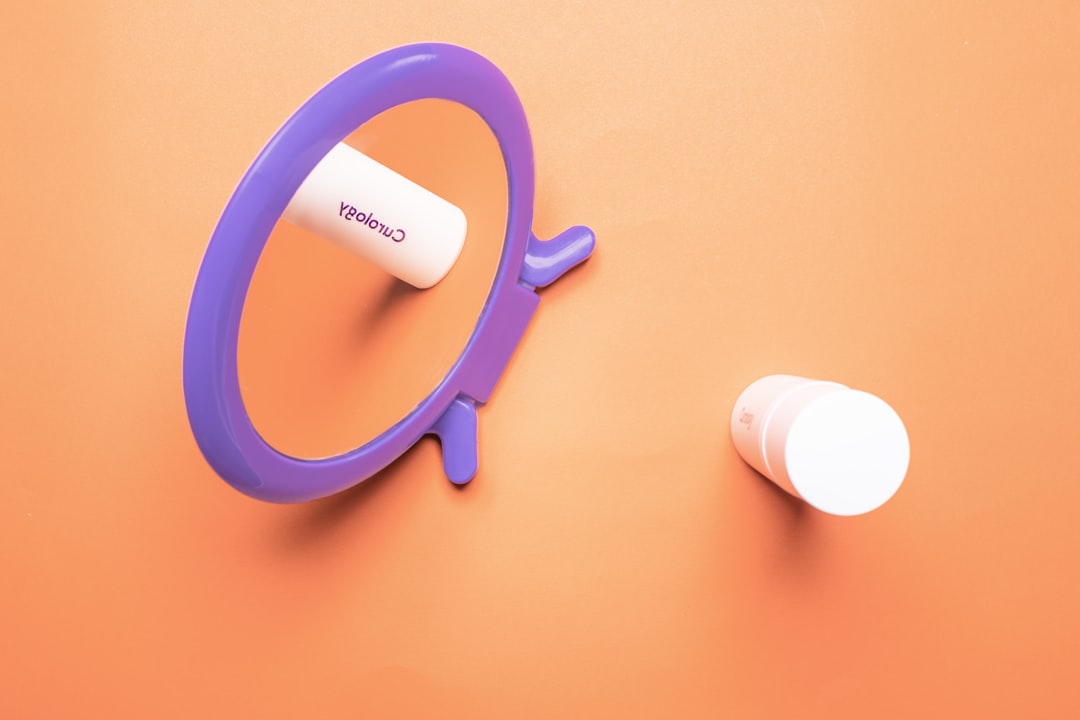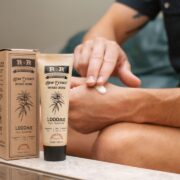
Boost Skin & Hair: Supplements for Radiant Beauty
Proper nutrition plays a crucial role in maintaining healthy skin and hair. Our diet directly impacts the health and appearance of our skin and hair, and deficiencies in certain vitamins and minerals can lead to various skin and hair problems. While a balanced diet is essential, sometimes it can be challenging to get all the necessary nutrients from food alone. This is where supplements come in. Supplements can help fill nutritional gaps and provide the body with the necessary vitamins, minerals, and other nutrients needed for optimal skin and hair health.
Key Takeaways
- Proper nutrition is crucial for healthy skin and hair.
- Vitamins and minerals like vitamin C, vitamin E, and zinc can improve skin health.
- Collagen supplements can promote youthful skin by improving elasticity and reducing wrinkles.
- Omega-3 fatty acids can benefit both skin and hair by reducing inflammation and promoting hydration.
- Antioxidants like vitamin A and vitamin C can protect skin from damage caused by free radicals.
The Importance of Proper Nutrition for Skin and Hair Health
Our diet has a significant impact on the health of our skin and hair. The foods we eat provide the building blocks for healthy skin and hair cells. Nutrient deficiencies can lead to dry, dull skin, brittle hair, and other issues. It is important to consume a variety of nutrient-rich foods to ensure that we are getting all the necessary vitamins, minerals, and antioxidants that support skin and hair health.
Getting enough vitamins and minerals is crucial for maintaining healthy skin and hair. For example, vitamin C is essential for collagen production, which helps keep the skin firm and youthful-looking. Vitamin E is an antioxidant that protects the skin from damage caused by free radicals. B vitamins, such as biotin, are important for healthy hair growth. Zinc helps regulate oil production in the scalp, preventing dandruff and promoting healthy hair growth. These are just a few examples of how vitamins and minerals play a role in skin and hair health.
Supplements for Healthy Skin: Vitamins and Minerals to Consider
Supplements can be a convenient way to ensure that we are getting all the necessary vitamins and minerals for healthy skin. Some of the key vitamins and minerals to consider for skin health include:
– Vitamin C: This vitamin is essential for collagen production, which helps keep the skin firm and youthful-looking.
– Vitamin E: An antioxidant that protects the skin from damage caused by free radicals.
– Vitamin A: Supports skin cell turnover and helps maintain a healthy complexion.
– Zinc: Helps regulate oil production in the scalp, preventing dandruff and promoting healthy hair growth.
– Selenium: An antioxidant that helps protect the skin from damage caused by UV rays.
– Biotin: Important for healthy hair growth and can help prevent hair loss.
Supplements can help fill nutritional gaps and ensure that we are getting all the necessary vitamins and minerals for healthy skin. However, it is important to remember that supplements should not replace a balanced diet. They should be used as a complement to a healthy lifestyle.
The Role of Collagen Supplements in Promoting Youthful Skin
| Study | Participants | Duration | Collagen Supplement | Results |
|---|---|---|---|---|
| Proksch et al. (2014) | 69 women aged 35-55 | 8 weeks | 2.5g of collagen peptides | Increased skin elasticity and hydration |
| Bolke et al. (2019) | 105 women aged 24-50 | 12 weeks | 2.5g of collagen peptides | Improved skin texture and reduced wrinkles |
| Asserin et al. (2015) | 114 women aged 45-65 | 8 weeks | 10g of collagen hydrolysate | Increased skin elasticity and hydration |
| Proksch et al. (2019) | 72 women aged 35-55 | 12 weeks | 2.5g of collagen peptides | Reduced wrinkle depth and improved skin hydration |
Collagen is a protein that is found in abundance in our skin, hair, nails, and connective tissues. It provides structure and elasticity to the skin, keeping it firm and youthful-looking. As we age, our body’s natural collagen production decreases, leading to the formation of wrinkles and sagging skin.
Collagen supplements have gained popularity in recent years for their potential benefits in promoting youthful skin. These supplements are typically derived from animal sources, such as bovine or marine collagen. They come in various forms, including powders, capsules, and drinks.
Taking collagen supplements can help replenish the body’s collagen levels and support healthy skin. Some studies have shown that collagen supplements can improve skin elasticity, hydration, and reduce the appearance of wrinkles. However, it is important to note that more research is needed to fully understand the effects of collagen supplements on skin health.
Omega-3 Fatty Acids and Their Benefits for Skin and Hair
Omega-3 fatty acids are a type of polyunsaturated fat that is essential for overall health. They play a crucial role in maintaining healthy skin and hair. Omega-3 fatty acids are found in fatty fish like salmon, mackerel, and sardines, as well as in walnuts, flaxseeds, and chia seeds.
Omega-3 fatty acids have anti-inflammatory properties, which can help reduce inflammation in the skin and scalp. This can be beneficial for conditions like acne, eczema, and psoriasis. Omega-3 fatty acids also help maintain the integrity of the skin barrier, keeping it hydrated and preventing moisture loss.
In addition to their benefits for the skin, omega-3 fatty acids also promote healthy hair growth. They nourish the hair follicles and help prevent hair loss. Omega-3 fatty acids also contribute to a healthy scalp, reducing dandruff and promoting shiny, lustrous hair.
Antioxidants and Their Role in Protecting Skin from Damage

Antioxidants are compounds that help protect the skin from damage caused by free radicals. Free radicals are unstable molecules that can damage cells and contribute to aging and various skin problems. Antioxidants neutralize free radicals, preventing them from causing harm to the skin.
There are many different types of antioxidants, including vitamins A, C, and E, as well as selenium and zinc. These antioxidants can be found in a variety of foods, such as fruits, vegetables, nuts, and seeds. However, it can be challenging to get enough antioxidants from diet alone, especially with today’s modern lifestyle.
Taking antioxidant supplements can help ensure that we are getting enough of these important compounds to protect our skin from damage. Some studies have shown that antioxidant supplements can improve skin health by reducing inflammation, promoting collagen production, and protecting against UV damage. However, it is important to note that more research is needed to fully understand the effects of antioxidant supplements on skin health.
Biotin and Other Nutrients for Strong, Shiny Hair
Biotin is a B vitamin that is often referred to as “the beauty vitamin” because of its role in promoting healthy hair, skin, and nails. Biotin is essential for the production of keratin, a protein that makes up the structure of the hair. It helps strengthen the hair shaft, preventing breakage and promoting healthy hair growth.
In addition to biotin, there are other nutrients that are important for hair health. These include vitamins A, C, and E, as well as zinc and iron. These nutrients support the production of sebum, a natural oil that moisturizes the scalp and prevents dryness. They also help nourish the hair follicles and promote healthy hair growth.
Taking biotin supplements can help improve the strength and appearance of the hair. Some studies have shown that biotin supplements can increase hair thickness and reduce hair loss. However, it is important to note that biotin supplements may not be effective for everyone, and it is always best to consult with a healthcare professional before starting any new supplement regimen.
The Benefits of Probiotics for Clear, Glowing Skin
Probiotics are beneficial bacteria that help maintain a healthy balance of microorganisms in the gut. They have gained popularity in recent years for their potential benefits in promoting digestive health. However, emerging research suggests that probiotics may also play a role in skin health.
The gut-skin axis is a term used to describe the connection between gut health and skin health. The theory is that imbalances in the gut microbiome can lead to inflammation, which can manifest as various skin conditions like acne, eczema, and rosacea.
Taking probiotic supplements can help restore a healthy balance of bacteria in the gut and reduce inflammation. Some studies have shown that probiotics can improve skin conditions like acne and eczema. However, more research is needed to fully understand the effects of probiotics on skin health.
Herbal Supplements for Skin and Hair Health: What to Know
There are many herbal supplements that are believed to promote skin and hair health. Some of the most popular ones include:
– Aloe vera: Known for its soothing and moisturizing properties, aloe vera is often used in skincare products to hydrate and calm the skin.
– Green tea extract: Rich in antioxidants, green tea extract can help protect the skin from damage caused by free radicals.
– Saw palmetto: This herb is often used to treat hair loss and promote healthy hair growth.
– Horsetail extract: Horsetail extract is rich in silica, a mineral that helps strengthen the hair and nails.
– Milk thistle: Milk thistle is believed to support liver health, which can indirectly benefit the skin by promoting detoxification.
While herbal supplements can have potential benefits for skin and hair health, it is important to note that they are not regulated by the FDA. This means that the quality and safety of these supplements can vary. It is always best to consult with a healthcare professional before starting any new herbal supplement.
The Connection Between Gut Health and Radiant Skin and Hair
The gut microbiome refers to the trillions of bacteria that live in our digestive tract. These bacteria play a crucial role in maintaining overall health, including the health of our skin and hair. Imbalances in the gut microbiome can lead to inflammation, which can manifest as various skin conditions like acne, eczema, and rosacea.
Maintaining a healthy gut microbiome is essential for radiant skin and hair. Eating a diet rich in fiber, fruits, vegetables, and fermented foods can help promote a healthy balance of bacteria in the gut. Probiotic supplements can also be beneficial for restoring a healthy balance of bacteria.
In addition to diet and probiotics, other lifestyle factors can also impact gut health. Stress, lack of sleep, and certain medications can disrupt the balance of bacteria in the gut. It is important to prioritize self-care and manage stress to maintain a healthy gut microbiome.
How to Incorporate Supplements into Your Beauty Routine for Maximum Results
Incorporating supplements into your beauty routine can be a great way to support skin and hair health. Here are some tips for incorporating supplements into your daily routine:
1. Consult with a healthcare professional: Before starting any new supplement, it is important to consult with a healthcare professional. They can help determine which supplements are right for you based on your individual needs and health goals.
2. Choose high-quality supplements: Look for supplements that are third-party tested for quality and purity. This ensures that you are getting a product that is safe and effective.
3. Follow the recommended dosage: It is important to follow the recommended dosage instructions on the supplement packaging. Taking more than the recommended dosage does not necessarily mean better results and can even be harmful.
4. Take supplements with food: Some supplements are best absorbed when taken with food. Read the instructions on the packaging or consult with a healthcare professional to determine the best time to take your supplements.
5. Be consistent: Consistency is key when it comes to taking supplements. Incorporate them into your daily routine and make it a habit to take them at the same time every day.
Proper nutrition is essential for maintaining healthy skin and hair. While a balanced diet should always be the foundation of a healthy lifestyle, supplements can help fill nutritional gaps and provide the body with the necessary vitamins, minerals, and other nutrients needed for optimal skin and hair health.
From collagen supplements for youthful skin to omega-3 fatty acids for healthy hair, there are many different types of supplements that can support skin and hair health. It is important to choose high-quality supplements, follow the recommended dosage, and consult with a healthcare professional before starting any new supplement regimen.
Remember, everyone’s needs are different, and what works for one person may not work for another. It is important to listen to your body and make choices that align with your individual needs and health goals. With the right combination of proper nutrition and supplements, you can achieve radiant, healthy skin and hair.
FAQs
What are skin and hair supplements?
Skin and hair supplements are dietary supplements that contain vitamins, minerals, and other nutrients that are believed to promote healthy skin and hair.
What are the benefits of taking skin and hair supplements?
Skin and hair supplements are believed to promote healthy skin and hair by providing the body with the nutrients it needs to maintain these tissues. Some of the benefits of taking skin and hair supplements may include improved skin hydration, reduced wrinkles and fine lines, stronger hair, and reduced hair loss.
What are some common ingredients in skin and hair supplements?
Some common ingredients in skin and hair supplements include biotin, vitamin C, vitamin E, vitamin A, zinc, and collagen.
Are skin and hair supplements safe?
Skin and hair supplements are generally considered safe when taken as directed. However, it is important to talk to your doctor before taking any new dietary supplement, especially if you are pregnant, breastfeeding, or taking medication.
How long does it take to see results from skin and hair supplements?
The time it takes to see results from skin and hair supplements can vary depending on the individual and the specific supplement being taken. Some people may see results within a few weeks, while others may take several months to see a noticeable difference.
Can skin and hair supplements replace a healthy diet?
No, skin and hair supplements should not be used as a replacement for a healthy diet. While supplements can provide additional nutrients, they should be used in conjunction with a balanced diet and healthy lifestyle habits.


















